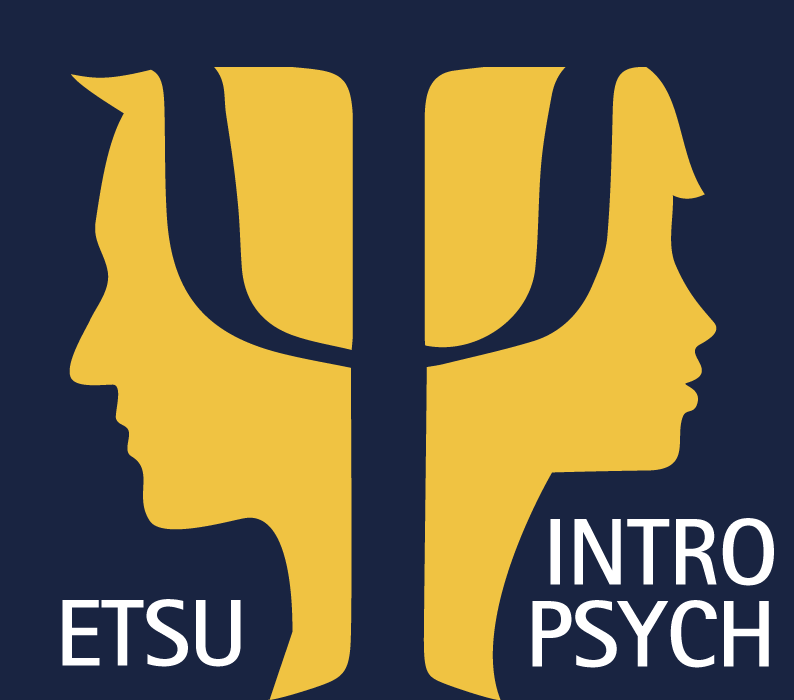Clinical neuropsychology is a sub-field of psychology concerned with the applied science of brain-behaviour relationships. Clinical neuropsychologists use this knowledge in the assessment, diagnosis, treatment, and or rehabilitation of patients across the lifespan with neurological, medical, neurodevelopmental and psychiatric conditions, as well as other cognitive and learning disorders. The branch of neuropsychology associated with children and young people is Pediatric Neuropsychology.
Assessment is primarily by way of neuropsychological tests, but also includes patient history, qualitative observation and may draw on findings from neuroimaging and other diagnostic medical procedures. Clinical neuropsychology requires an in-depth knowledge of: neuroanatomy, neurobiology, psychopharmacology and neuropathology.

History
During the late 1800s, brain-behaviour relationships were interpreted by European physicians who observed and identified behavioural syndromes that were related with focal brain dysfunction.
Assessment
Lezak lists six primary reasons neuropsychological assessments are carried out: diagnosis, patient care and its planning, treatment planning, treatment evaluation, research and forensic neuropsychology. To conduct a comprehensive assessment will typically take several hours and may need to be conducted over more than a single visit. Even the use of a screening battery covering several cognitive domains may take 1.5-2 hours. At the commencement of the assessment it is important to establish a good rapport with the patient and ensure they understand the nature and aims of the assessment.
Neuropsychological assessment can be carried out from two basic perspectives, depending on the purpose of assessment. These methods are normative or individual. Normative assessment, involves the comparison of the patient's performance against a representative population. This method may be appropriate in investigation of an adult onset brain insult such as traumatic brain injury or stroke. Individual assessment may involve serial assessment, to establish whether declines beyond those which are expected to occur with normal aging, as with dementia or another neurodegenerative condition.
Assessment can be further subdivided into sub-sections:
History taking
Neuropsychological assessments usually commence with a clinical interview as a means of collecting a history, which is relevant to the interpretation of any later neuropsychological tests. In addition, this interview provides qualitative information about the patient's ability to act in a socially apt manner, organise and communicate information effectively and provide an indication as to the patient's mood, insight and motivation. It is only within the context of a patient's history that an accurate interpretation of their test data and thus a diagnosis can be made. The clinical interview should take place in a quiet area free from distractions. Important elements of a history include demographic information, description of presenting problem, medical history (including any childhood or developmental problems, psychiatric and psychological history), educational and occupational history (and if any legal history and military history.)
Selection of neuropsychological tests
It is not uncommon for patients to be anxious about being tested; explaining that tests are designed so that they will challenge everyone and that no one is expected to answer all questions correctly may be helpful. An important consideration of any neuropsychological assessment is a basic coverage of all major cognitive functions. The most efficient way to achieve this is the administration of a battery of tests covering: attention, visual perception and reasoning, learning and memory, verbal function, construction, concept formation, executive function, motor abilities and emotional status. Beyond this basic battery, choices of neuropsychological tests to be administered are mainly made on the basis of which cognitive functions need to be evaluated in order to fulfill the assessment objectives. With advances in technology, many clinical neuropsychologists have opted to utilize online and iPad based testing measures through services such as Pearson Assessment's Q-interactive and PAR's iConnect.
Report writing
Following a neuropsychological assessment it is important to complete a comprehensive report based on the assessment conducted. The report is for other clinicians, as well as the patient and their family so it is important to avoid jargon or the use of language which has different clinical and lay meanings (e.g. intellectually disabled as the correct clinical term for an IQ below 70, but offensive in lay language). The report should cover background to the referral, relevant history, reasons for assessment, neuropsychologists observations of patient's behaviour, test administered and results for cognitive domains tested, any additional findings (e.g. questionnaires for mood) and finish the report with a summary and recommendations. In the summary it is important to comment on what the profile of results indicates regarding the referral question. The recommendations section contains practical information to assist the patient and family, or improve the management of the patient's condition.
Online Psychology Classes For Credit Video
Educational requirements of different countries
The educational requirements for becoming a clinical neuropsychologist differ between countries. In some countries it may be necessary to complete a clinical psychology degree, before specialising with further studies in clinical neuropsychology. While some countries offer clinical neuropsychology courses to students who have completed 4 years of psychology studies. All clinical neuropsychologists require a postgraduate qualification, whether it be a Masters or Doctorate (Ph.D, Psy.D. or D.Psych).
Australia
To become a clinical neuropsychologist in Australia requires the completion of a 3-year Australian Psychology Accreditation Council (APAC) approved undergraduate degree in psychology, a 1-year psychology honours, followed by a 2-year Masters or 3-year Doctorate of Psychology (D.Psych) in clinical neuropsychology. These courses involve coursework (lectures, tutorials, practicals etc.), supervised practice placements and the completion of a research thesis. Masters and D.Psych courses involve the same amount of coursework units, but differ in the amount of supervised placements undertaken and length of research thesis. Masters courses require a minimum of 1,000 hours (125 days) and D.Psych courses require a minimum of 1,500 hours (200 days), it is mandatory that these placements expose students to acute neurology/neurosurgery, rehabilitation, psychiatric, geriatric and paediatric populations. The Australian Psychological Society does not specify a minimum word count for the research component of either degree, but this is generally around 15,000 words or more for a Masters and up to 50,000 for a Doctorate. Entry to these courses is very competitive and is generally decided on the basis of academic merit (a H1 or H2A honours mark), referee reports and an interview process. Experience with clinical populations is highly regarded and often considered essential in the selection process. Australian universities offering a D.Psych or master's degrees in clinical neuropsychology include: La Trobe University, Macquarie University, Monash University, University of Melbourne, University of Queensland and University of Western Australia. Annual intake for each of these universities range from approximately 7 to 17 candidates. Depending on the university, courses may be offered as Commonwealth supported places (HECS/HELP) or full-fee courses.
Canada
To become a clinical neuropsychologist in Canada requires the completion of a 4-year honours degree in psychology and a 4-year doctoral degree in clinical neuropsychology. Often a 2-year master's degree is required before commencing the doctoral degree. The doctoral degree involves coursework and practical experience (practicum and internship). Practicum is between 600 and 1,000 hours of practical application of skills acquired in the program. At least 300 hours must be supervised, face-to-face client contact. The practicum is intended to prepare students for the internship/residency. Internships/residencies are a year long experience in which the student functions as a neuropsychologist, under supervision. Currently, there are 3 CPA-accredited Clinical Neuropsychology internships/residencies in Canada, although other unaccredited ones exist. Prior to commencing the internship students must have completed all doctoral coursework, received approval for their thesis proposal (if not completed the thesis) and the 600 hours of practicum. Clinical neuropsychology courses are offered at the following Canadian universities:Université de Montréal, Simon Fraser University, University of Victoria, York University and University of Windsor.
United Kingdom
To become a clinical neuropsychologist in the UK, requires prior qualification as a clinical or educational psychologist as recognised by the Health Professions Council, followed by further postgraduate study in clinical neuropsychology. In its entirety, education to become a clinical neuropsychologist in the UK consists of the completion of a 3-year British Psychological Society accredited undergraduate degree in psychology, 3-year Doctorate in clinical (usually D.Clin.Psy.) or educational psychology (D.Ed.Psy.), followed by a 1-year Masters (MSc) or 9-month Postgraduate Diploma (PgDip) in Clinical Neuropsychology. Masters programs include a research component that Postgraduate Diploma courses do not. Postgraduate courses in clinical neuropsychology are offered by: University of Bristol, University of Glasgow, University of Nottingham and University College London.
United States
In order to become a clinical neuropsychologist in the US and be compliant with Houston Conference Guidelines, the completion of a 4-year undergraduate degree in psychology and a 4 to 5-year doctoral degree (Psy.D. or Ph.D.) must be completed. After the completion of the doctoral coursework, training and dissertation, students must complete a 1-year internship, followed by an additional 2 years of supervised residency. The doctoral degree, internship and residency must all be undertaken at American Psychological Association approved institutions. After the completion of all training, students must apply to become licensed in their state to practice psychology. The American Board of Clinical Neuropsychology, The American Board of Professional Neuropsychology, and The American Board of Pediatric Neuropsychology all award board certification to neuropsychologists that demonstrate competency in specific areas of neuropsychology, by reviewing the neuropsychologist's training, experience, submitted case samples, and successfully completing both written and oral examinations. Although these requirements are standard according to Houston Conference Guidelines, even these guidelines have stated that the completion of all of these requirements is still aspirational, and other ways of achieving clinical neuropsychologist status are possible.
Clinical neuropsychology courses are offered at the following US universities: Adler School of Professional Psychology, Argosy University (Seattle, Chicago & Atlanta campuses), Ball State University, Binghamton University, Brigham Young University, City University of New York, Drexel University, F. R. Carrick Institute, Florida Institute of Technology, Fielding Graduate University, Fordham University, Forest Institute, Fuller Graduate School of Psychology, Illinois School of Professional Psychology at Argosy University, Northwestern University, Nova Southeastern University, Pacific University, Palo Alto University, San Diego State University-University of California, San Diego (Joint Doctoral Program), Temple University, University of Arizona, University of Cincinnati, University of Connecticut, University of Florida, University of Georgia, University of Houston, University of Kentucky, University of Massachusetts Amherst, University of Missouri, University of Missouri-Kansas City, University of South Florida, University of Texas at Austin, University of Utah, University of Wisconsin, Washington State University, Washington University, Wayne State University, Widener University and Yeshiva University.

Journals
The following represents an (incomplete) listing of significant journals in or related to the field of clinical neuropsychology.
Are You Looking for Products
Here some products related to "Clinical Neuropsychology".
A Social Psychology Resea..
Introducing Positive Psyc..
Listening to Killers: Les..
Minds Online: Teaching Ef..
Get these at Amazon.com* amzn.to is official short URL for Amazon.com, provided by Bitly
Source of the article : here






EmoticonEmoticon